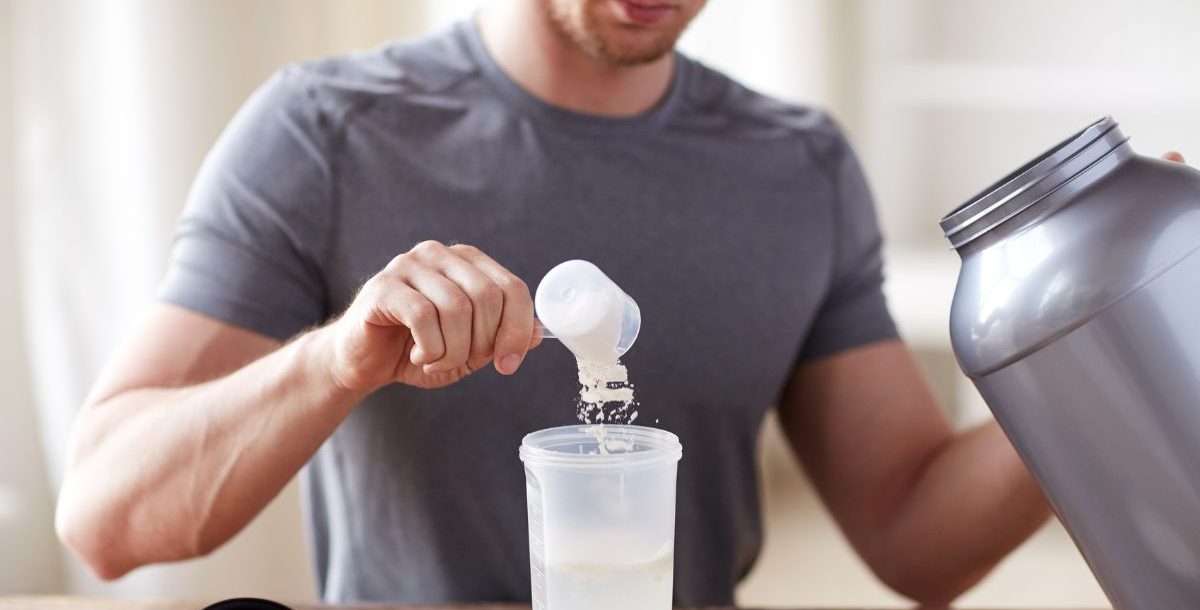Protein has a great reputation. It helps build muscle, keeps you feeling full and plays a significant role in staying healthy. While high-protein diets, shakes and meal plans focused on weight loss exist and are often popular, it’s easy to think that consuming more is better. But can you eat too much protein?
Yes, you can eat too much protein. And while it’s important, too much over time can cause problems for your body – especially if it comes from the wrong sources.
If you want to eat more protein, make an appointment with a registered dietitian. They can help you make informed changes to your diet to ensure you’re getting all the nutrients you need to stay healthy.
Why protein matters
Protein is one of the main building blocks of your body. It helps build and repair muscle, supports your immune system and gives you energy. Every cell contains it, which is crucial when you are growing, healing or trying to lose weight.
Many protein sources exist, including:
- Animal: Meat, poultry, fish, eggs and dairy
- Plant-based: Beans, nuts, seeds, lentils and tofu
While both kinds are healthy, plant-based sources often contain less saturated fat and more fiber, which can help protect your heart.
How much protein do you need?
Most people don’t need as much as they think. The recommended daily amount of protein for most adults is around 0.8 grams per kilogram of body weight. That’s about 50 to 60 grams per day for the average adult.
If you’re very active, lifting weights to build muscle mass or healing from an injury, you might need a bit more – but not double or triple.
Here’s a rough idea of how much protein is in some common foods:
- 3 ounces of chicken: 25 grams
- 1 cup of lentils: 18 grams
- One egg: 6 grams
- 1 tablespoon of peanut butter: 4 grams
Most people can meet their needs just by eating regular meals, without the need for shakes or extra bars.
What happens when you eat too much protein?
Eating excessive protein now and then is unlikely to cause problems. But regularly going way over your daily needs can lead to some not-so-great side effects.
Kidney stress
One of the most common concerns about high-protein diets is their effect on the kidneys. While healthy kidneys can handle a bit more, people who already have kidney disease or kidney problems could make things worse by consuming more than needed.
This is because breaking down protein creates waste that your kidneys have to filter out. Too much means more work for your kidneys.
Dehydration
Processing extra protein can make your body lose more water, which could lead to dehydration, especially if you’re not drinking enough. If you’re increasing your intake, be sure to also increase your water intake.
Excess weight
This might sound surprising, but eating too much protein can cause you to gain weight, especially if you’re eating large amounts of animal-sourced options like red meat. These can be high in saturated fat and are extra calories you may not need.
Digestive problems
High-protein diets that skip fiber-rich foods (like fruits, veggies and whole grains) can lead to stomach problems like constipation. Your digestive system needs both to stay regular.
Heart health
Many high-protein foods – especially red meat and processed meats – contain a lot of saturated fat. Eating too much of these foods increases the risk of heart disease. Choosing lean proteins and plant-based options can help lower that risk.
Who should be careful?
Some groups should talk to their primary care provider or a registered dietitian before starting a high-protein diet or drastically increasing their consumption of it:
- People with kidney disease or diabetes
- People at risk for heart disease
- Children and teens (who need a balanced diet, not extremes)
- Older adults with specific health conditions
Even athletes should aim for the right amount, not just more.
Smart ways to get protein
Not just how much you eat, but also where it comes from, matters. Here are some better, high-protein choices for when you’re planning your meals:
- Fish: Includes plenty of healthy fats
- Beans and lentils: Packed with fiber
- Tofu and tempeh: Great plant-based options
- Eggs and Greek yogurt: Lean sources
- Nuts and seeds: Good for snacking or adding to meals
Try to limit red meat and avoid processed meats like bacon, sausage and deli meats. These tend to be high in saturated fat and sodium.
What to watch for
If you’re wondering whether you might be getting too much protein, here are some signs to pay attention to:
- Feeling extra thirsty
- Frequent urination
- Constipation
- Gaining weight (even when you think you’re “eating healthy”)
If any of this sounds familiar, it might be time to look at your protein intake.
How we can help
Nutrition advice can be confusing, especially when you account for the trendiness of certain diets and foods. If you’re unsure how much you should be eating, or if you’re dealing with health issues like kidney disease, weight concerns or heart problems, make an appointment with your primary care physician.
If too much protein is the issue, they may refer you to a registered dietitian to help you sort out your diet.
Learn about the primary care as well as the nutrition and dietetics services we offer at Mercy Health.






